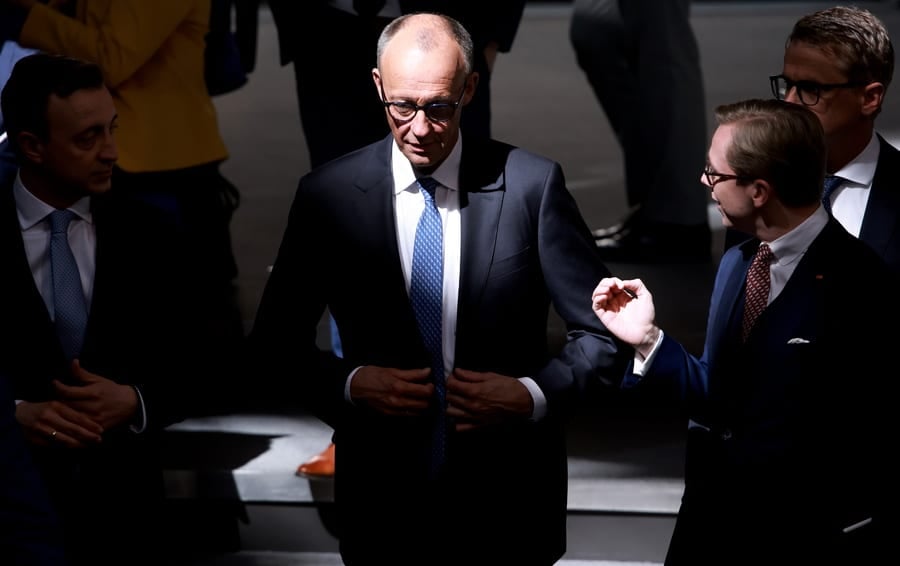

Germany’s Friedrich Merz has been confirmed as the country’s next chancellor in a second vote with a total of 325 votes of the 630 delegates in the Bundestag, after a shocking defeat in the first round only hours earlier.
Merz failed to win the initial parliamentary vote, in what has been described as a major and unprecedented setback for the conservative leader, sending shock waves across Germany and Europe.
Merz needed 316 votes in the 630-seat Bundestag but only secured 310, two and a half months after winning Germany’s federal elections but without securing enough seats to govern outright.
His coalition with the center left has had enough seats in parliament and the vote was set to be a commodity. However, it appears that during the initial vote, 18 MPs who were expected to back him had dissented. The vote is secret so it was difficult to pinpoint exactly where support for Merz collapsed.
Merz’s failure in the first vote is seen as unprecedented in modern German history and was expected to end Germany’s recent political limbo after the last government collapsed.
Had the second vote not taken place, the Bundestag would have had 14 days to choose either Merz or another candidate as chancellor with more than half its members. The far-right Alternative for Germany (AfD), which came second in the elections, had demanded that Merz steps aside and called for fresh elections.
Under Germany’s constitution there is no limit to how many voted can be held, but if no absolute majority is reached within that period, then a candidate can be elected by a simple majority.
Amid the initial prevailing mood of confusion, Merz was still expected to eventually find a path to power, but the vote result briefly plunged Germany again into turmoil.

Friedrich Merz’s Christian Democrats party (CDU) won Germany’s elections with 28.6 percent, while the far-right Alternative for Germany (AfD) recorded big gains with 20.8 percent, becoming the second biggest political force in the country.
Olaf Scholz’s center-left party (SPD) was third with 16.4 percent of the vote. The Green party was fourth, with 11.6 percent.
Friedrich Merz, an old-school conservative who has never held a government role before, was set to become the new chancellor of Germany.
After his win, he said that he is “aware of the responsibility that now lies ahead” of him. He told the crowd that they need to “quickly regain our ability to act so that we can do the right thing at home, so that we are once again present in Europe, so that the world can see that Germany is being governed reliably once again.”
The election followed a tense campaign marked by a far-right surge, a struggling economy, and growing concerns over migration.
Merz’ conservative party signed a coalition deal with the center-left Social Democrats in April, vowing to “move the country forward again” by boosting the economy and defense.
